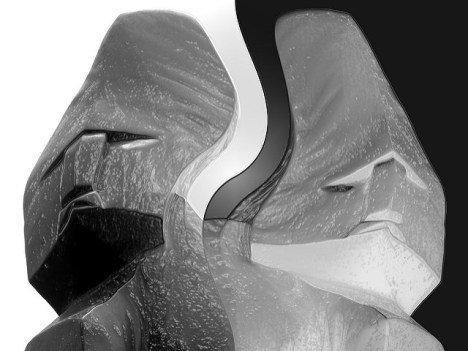Bipolar disorder has been understood through its manifested symptoms. Once it appeared consistently, clearly, and in bullet-form in books of psychology and psychiatry, beliefs about it also became more set. This is the power of books, or one might say, of advertizing. Bipolar disorder became a greatly advertized illness, and it gained social acceptability with time. However, producing a label and having it accepted by society does not simplify a very complex matter. Those who think otherwise are sorely misled.

Even though bipolar disorder, formerly known as manic-depression is a single label, it covers two different expressions. The name itself suggests so. It is one thing, that people are looking for the expression of depression or mania and then also the co-existence of both, to make a final diagnosis. What is more interesting is the fact, there is not until today an absolutely decisive physical test to verify its diagnosis. Bipolar disorder, among other psychiatric diagnoses, has been as much a matter of faith as of science.
What the observer believes makes a difference
The pre-existing beliefs of whoever is seeing a person’s behavior makes a very significant difference. It makes so much difference that, where a psychiatrist or psychologist sees a disease, another person of religious faith sees a spiritual manifestation. You can see, there is no observer who is able to see anything with pure objectivity. There is always some room, some scope for interpretation. This should not be considered some kind of flaw. This is simply a fact about human understanding.
Having turned mental health or illness into an institutional undertaking brought it respectability. When trained physicians make a diagnosis, one is likely to conclude that they truly understand what they are saying. However, this is not always the case. When one sees beyond the respectability given to professionals, these are human beings as susceptible to having wrong beliefs as anyone in the general public. Being a professional simply means, that a person has been trained in the belief-system of his profession. It is possible, there is some truthfulness to the claims and observations of the profession of mental health, but their conclusions are never above scrutiny or criticism.
The observer sees in accord with his beliefs
We see it all the time. The observer sees as his mind is conditioned to believe. Each believer is capable of introducing his own context to the observation.
Being a professional simply means, that a person has been trained in the belief-system of his profession.
Even mental-health professionals differ from each other. Even though they are trained in the understanding and diagnosis of mental illnesses, it is not that they all reach the same conclusions. For example, one doctor is trained to focus more narrowly on the physical aspect of diagnosing bipolar disorder. This one would most certainly be inclined to focus on things like diet, sleep, and other physical causes. His solutions would also more likely focus on physical solutions, which may or may not involve medication. Another doctor might be more focused on the social aspect of diagnosing bipolar disorder. This one focuses more on the family and friends angle. Either one brings something to the equation, and yet not the completeness of understanding.
People in general society, too, are trained to understand matters a certain way. If one belongs to a deeply religious, Bible-believing community, how could it be that they see the erratic behavior and not see its similarity to the prophets of the Hebrew scriptures? Or they might see the manifestation of some evil spirits. This way of understanding is legitimate, plausible, and appropriate in its own specific context. Yet, it might be missing on paying attention to the possibility of underlying physical causes like the presence of a chemical contaminant in the environment, or of the hormones. These people might altogether be unwilling to see the flaw in their own beliefs or the effect of those beliefs as a possible reason for the great mental and emotional disturbance to some individuals.
Different people see in accord with what they focus on
By training or by beliefs, people not only see what they want to see, they even focus on what they are conditioned to focus on. Bipolar disorder brings with it its own set of beliefs. The way it exists in books of psychology or psychiatry, there is undeniable evidence of the progression of a belief system that evolved with each noticeable observer of bipolar disorder.
The narrowing down of complex human behaviors down to the physical level has arisen out a desire for certainty, and out a desire to simplify the understanding of human behavior. Is this approach absolutely incorrect? No. Is such an approach complete in itself? Not at all! However, as it often happens in regards to belief, when it changes from a personal belief to a social phenomenon, it undergoes a great transformation.
I will continue to write more on this subject of bipolar disorder in the coming days, examining it from several different angles.

